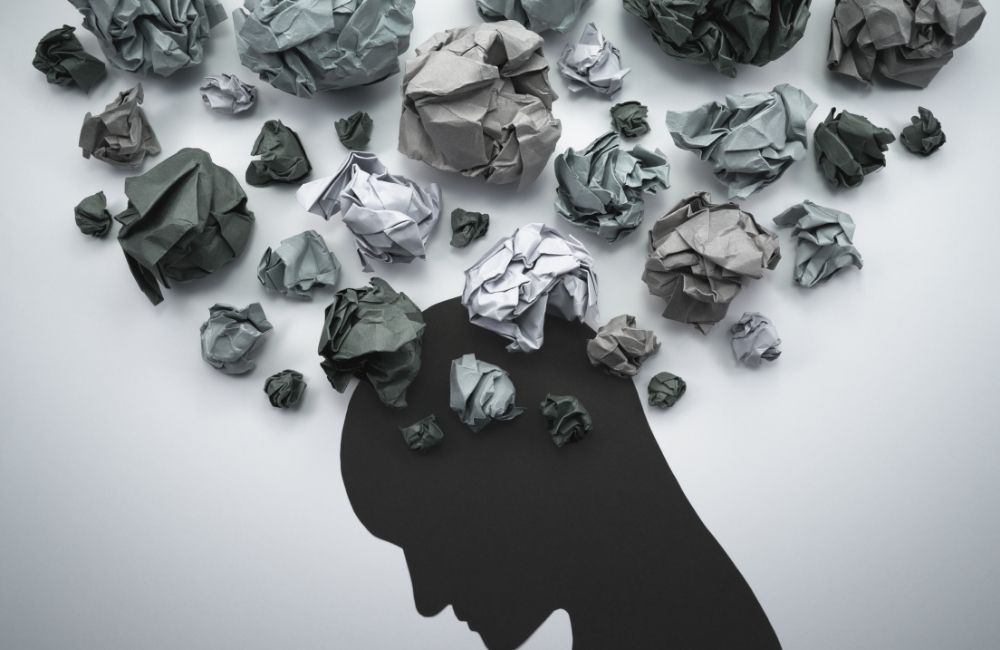Dealing with anxiety is defined as feeling worrisome and uneasy due to reasons that may or may not be fully rational.
Feeling anxious now and then is completely normal and even a natural response of the body towards certain things. But when this feeling is prolonged over a long time, it might be time to see a psychotherapist and figure out the underlying reasons that might be causing it.

Apart from seeking help from a medical professional, one needs to educate themselves about anxiety to deal with it better and help themselves. Here are some ways one can deal with anxiety:
Table of Contents
Accepting anxiety
As cliche as it sounds, the most important part of dealing with and navigating through anxiety is to accept what one is feeling and how they are feeling it.
One cannot deal with anxiety and learn to live a better life with it if they are still living in denial and not ready to identify that they might be struggling with an anxiety disorder and also that it is completely normal.
Look after yourself
Although a healthy lifestyle cannot just lead to reduced anxiety as many other factors contribute to anxiety, one can see small healthy changes that come with eating healthy, exercising, and having a regular sleeping schedule.
Try breathing practices
Breathing doesn’t just mean that one can breathe, and the feeling of uneasiness and panic will go away. It takes much more than that. That is why one can learn various breathing techniques that can help one navigate anxiety and help one ground to reality.
Doing this needs a lot of research and trying out different things because naturally, a technique cannot work the same for everyone, but one can still see what helps them work through their anxiety.
Practicing mindfulness
Mindfulness refers to the awareness that everything is temporary and will pass. It means acknowledging one’s feelings and letting them pass instead of getting stuck pondering about them constantly, as we often do. One can use many techniques for this, such as guided meditations, etc.
Deconstruct worries
When your brain tells you to worry about something, it might be a good idea to ask yourself why you need to worry about that particular subject matter. This helps you understand where the worry and the anxiety itself stemming from. It might prove to be a useful trip for many, while it may not work at all for others because many people spiral down into an anxious hole when they start to pay attention to what worries them.
Journaling
Writing down one’s thoughts can be a good way for many people struggling with anxiety to navigate through it. Often, we cannot speak to people about how we’re feeling, so we cannot let out any latent emotions that might be ebbing underneath the surface. In such cases, writing what makes one anxious can help write the worry. It doesn’t feel as heavy anymore. Check out these journal prompts for mental health.
Identify triggers
This might be one of the most important tips that one might get from any list, but one identifies what triggers their anxiety and learns about them more to manage them more efficiently. Once you’ve identifies your triggers, you can learn to deal with them better.
Alleviating the symptoms
Learning about the signs and symptoms that your body shows due to anxiety is an essential part of being able to live comfortably with anxiety. One can start by noticing how their body reacts to certain stimuli and try to reverse that and be conscious of it. For example: If one clenches their jaws a lot, they can start by being conscious of it and relaxing their jaw every time they catch myself tightening them.
Grounding technique
This is a technique that many might find helpful because it doesn’t take much practice and helps one get out of their heads and break their chain of thoughts by making themselves aware of their surroundings. In this technique, one has to use 5 things that they can identify with each of their 5 sense organs, i.e., a smell, a color, a taste, a sound, and touch something and identify it.
Seeking help
One can research all about mental illnesses like anxiety disorders, etc., but they cannot possibly deal with it independently without the help of a professional who is trained to deal with such issues. Many people who struggle with mental health should not wait for the symptoms to worsen and get psychotherapy for anxiety as soon as they identify a pattern.
Over to you…
Whatever happens, one must remember that dealing with anxiety alone is never a solution and might worsen. One might not be able to talk to just anyone about it no matter how close they are with that person, but one should consider talking to a professional because they know and can help as nobody else can.